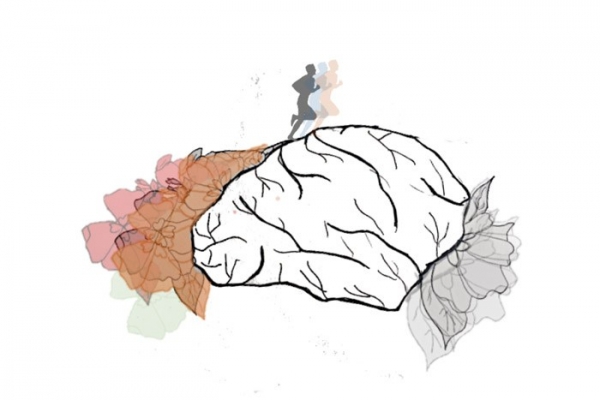As the approaching finals mark the end of another semester, the spike of stress, anxiety, and mismanaged student mental health crises warrant a conversation about headspace. It is by no means news that mental health services at McGill do not effectively accommodate students’ needs: There are many instances of students waiting for months to receive a consultation. This is due to various reasons, such as a lack of clinical professionals and limited funding. The end of the semester represents a generally tense time for students. The lack of days off and time for self-care exacerbates feelings of stress.
From the start of the semester until now, students have had a total of one day off, for Thanksgiving. The fall semester is a particularly challenging three months for many reasons. For one, the semester encompasses the transition from summer to winter. The days gradually become shorter, which unfortunately correlates with the semester becoming increasingly intense, with exams, ‘paper season,’ and assignments all due within a short period of time. With only a one day break, students become overworked and exhausted as the semester progresses, which ultimately hinders their academic performance nearing finals season. Yet, students’ calls for instituting a Fall Reading Week have been met with delays and filibustering from the university.
For first-year students, especially, the fall semester is quite the whirlwind. Acclimatizing to the intensity of university while establishing a network of support away from home is a strenuous process. Without breaks from school, first-year students do not have any opportunity to stop and reflect on the rush that is the first semester. The pace of first-year can lead to a disregard for mental health for the sake of keeping up academically, a trade-off that is quite damaging. The very structure of university imposes constant stresses and triggers to engage students through regularly scheduled quizzes, assignments, and exams. Though this works to ensure that students stay on-track, it also is overwhelming. The demand for time is also heightened by further peer pressure to be involved socially and to be involved with extracurricular activities.
With all of this constant pressure, making time and space for oneself to relax is crucial. ‘Taking time for yourself’ looks different for everyone. For some, the marathon of a non-stop semester is not as much of a challenge. For others, the semester represents a lack of motivation and burnout. While exercising or exploring Montreal are some great ways to take time for one’s self, the reality is that non-stop work for three straight months takes a heavy toll on students. The provision of stress-balls and opportunities pet golden retrievers offers only short-term relief in comparison to the accumulated stress and emotional fluctuations that students experience throughout the semester. Therefore, a greater consideration from McGill by offering more breaks would add a great deal to the process of taking time for ourselves.
The prioritization of mental health in the university space is a task for both students and the university. The university holds a great responsibility in ensuring that mental health services are accessible. McGill recently collaborated with the Rossy Foundation to create the Wellness Hub, with the aim of integrating medical care with counselling and psychiatric services. This is very much a step in the right direction. However, structural elements, such as the limited days off, present a large burden on students’ mental health, and further reforms in addition to this Wellness Hub should consider this factor. The end of the semester invites for these necessary conversations on how the university can implement reforms that will allow students to gain some much-needed headspace.
Whether a first-year new to university or an upperclassman, the time spent in university is pivotal in the transition to adulthood. This process weighs heavily on students’ mental health, as it involves establishing one’s personal politics, deciding what professional paths to take, and possibly setting emotional boundaries. An essential way that McGill can alleviate the stressful burden of a packed fall semester is creating a full break for students to regenerate.







